Common Law Lawyers : Reasons To Have Hope
- Par Carine Tsiele
- 11 avril 2017 17:37
- 0 Likes
Commentary.
A press statement by the President of the Bar Council, Jackson Ngnie Kamga on 9 April, 2017 announcing the eventual resumption of courts in the North West and South West Regions for 2 May, 2017 must have been received as salutary by many and may have as well taken others aback. This is because it followed some six months of the closure of court sessions in the two regions of the country due to protest by Common Law Lawyers over structural and professional acrimonies which have spiralled into an appreciation of the democratisation process in Cameroon. Beyond all forms of agitation, time has proven to be the most important tool in unravelling solutions to the various problems posed, raising hope that those who are impatient to see a way out simple need to put in their positive contribution and watch how events will unfold.
It all rolled off with the perceived infiltration of the Anglophone Courts by personnel of the Civil Law sub-system in the country who demonstrated blatant indifference to linguistic and proficiency concerns which actually constitute endowments for Cameroon. Recalling the historical rigmarole here may appear cumbersome, but the fact today is that the parties involved have common challenges that they must tackle collectively. Faced with such interconnectivity in the country, the intervention of the President of the Bar Council ought not to surprise anyone. Barrister Ngnie Kamga by virtue of his position as President of the Bar has been involved at the onset of the problem and stands a chance to master the stakes.
That his announcement is coming after the Minister of State, Minister of Justice and Keeper of the Seals, Laurent Esso on 30 March, 2017 presented a number of injunctions from the President of the Republic calling for concrete responses to the technical preoccupations of the Common Lay Lawyers is timely. Express presidential instructions for the Supreme Court, the National School of Administration and Magistracy, ENAM to open up to the Common Law system in the country and the training of students within more State Universities on the Anglo-Saxon legal practices are telling. These were clearly some of the sticking points of the aggrieved lawyers in the North West and South West Regions.
In addition, the follow up to the disclosures made by the Minister of State have been swift. An ad hoc Commission created on 6 April, 2017 by the Minister of Public Service and Administrative Reforms defined a three-year period from 2017-2020 fiscal years for a special recruitment of Anglophone legal personnel to work in jurisdictions of the North West and South West Courts of Appeal.
Such measures elucidate President Paul Biya’s promises that the legitimate concerns raised by the Common Law Lawyers and teachers will be looked into. The systematic provision of responses to the issues that have been until now seen by some people like a hot potato, or inconceivable demands, in the eyes of others send home a message that the full measure of the concerns is obvious to the ...
Cet article complet est réservé aux abonnés
Déjà abonné ? Identifiez-vous >
Accédez en illimité à Cameroon Tribune Digital à partir de 26250 FCFA
Je M'abonne1 minute suffit pour vous abonner à Cameroon Tribune Digital !
- Votre numéro spécial cameroon-tribune en version numérique
- Des encarts
- Des appels d'offres exclusives
- D'avant-première (accès 24h avant la publication)
- Des éditions consultables sur tous supports (smartphone, tablettes, PC)






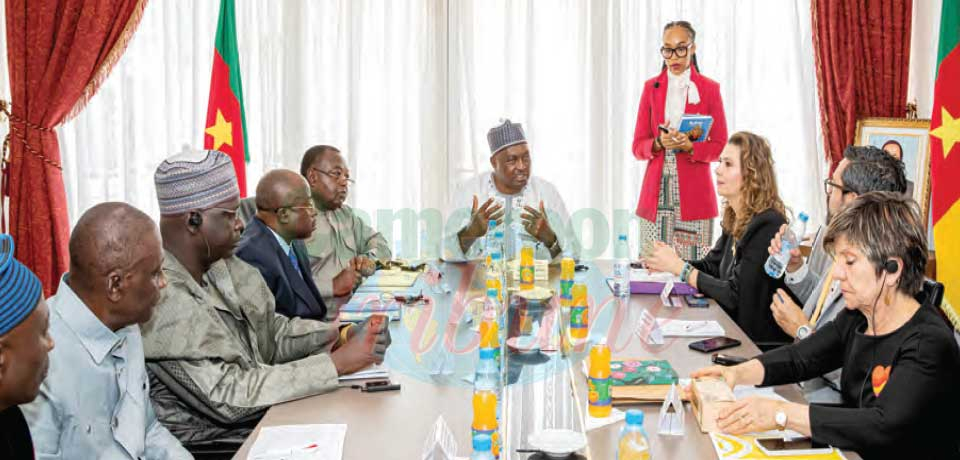
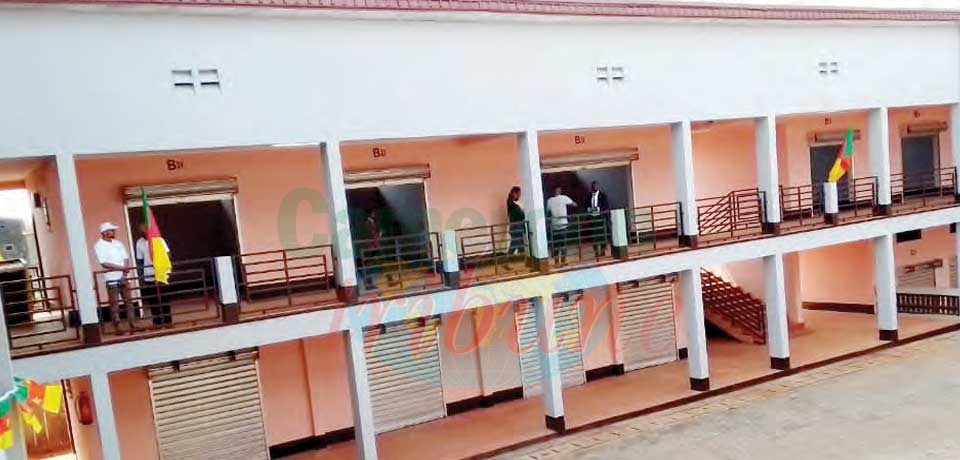
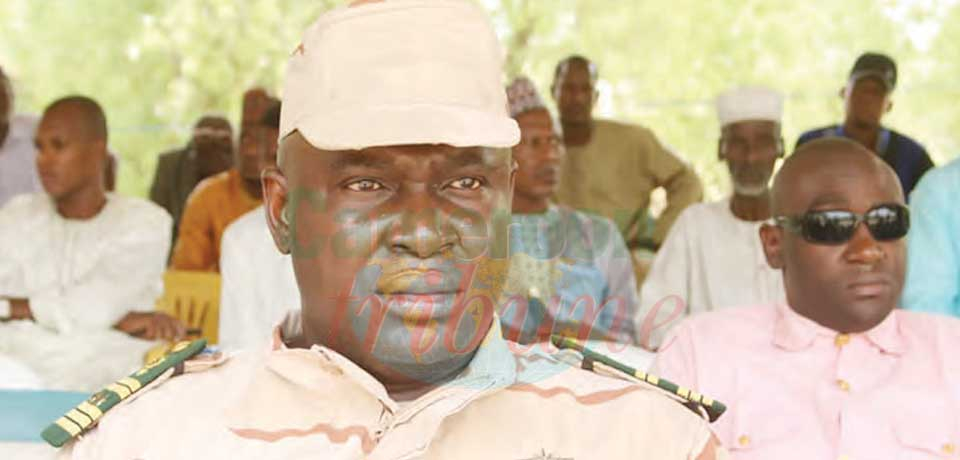
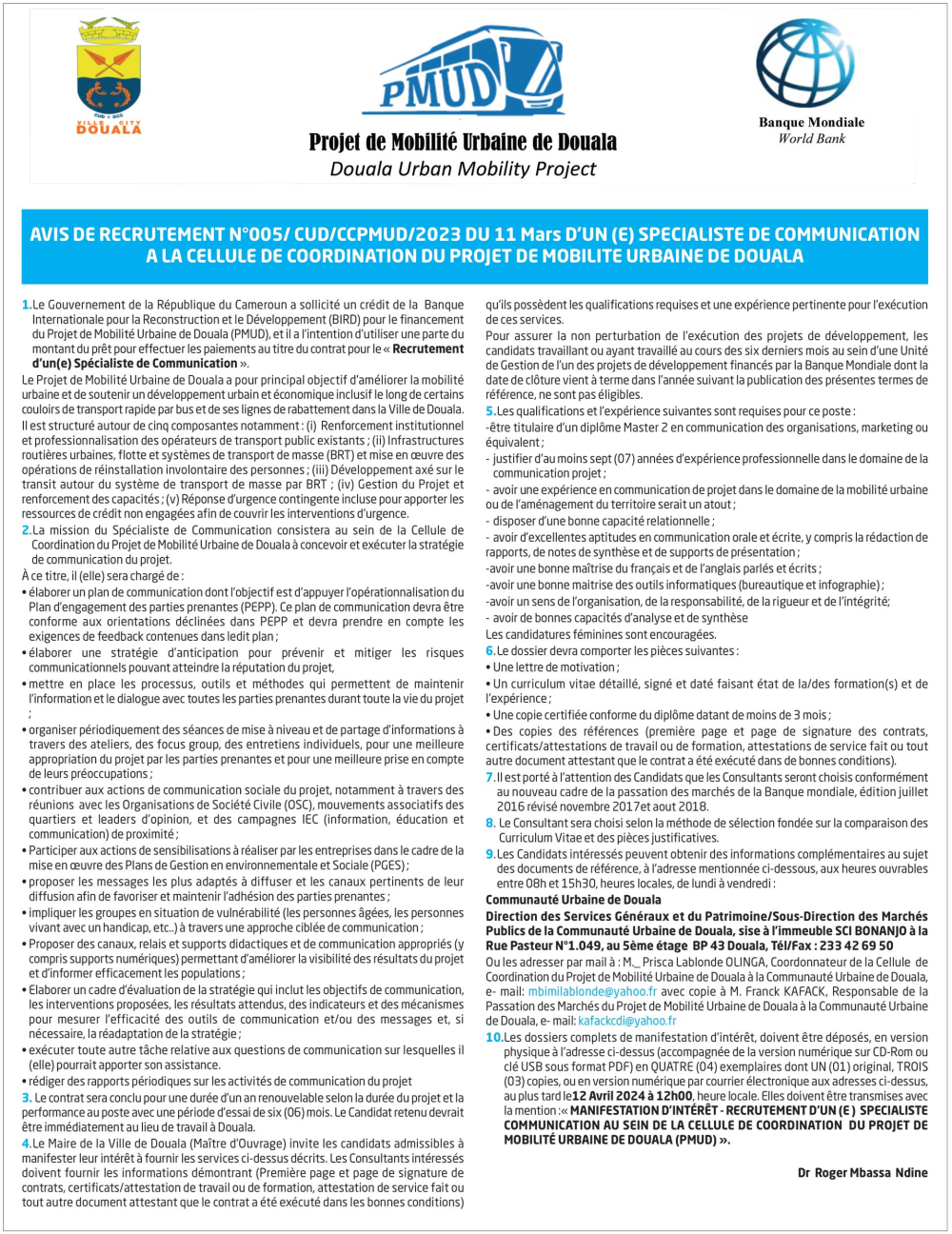
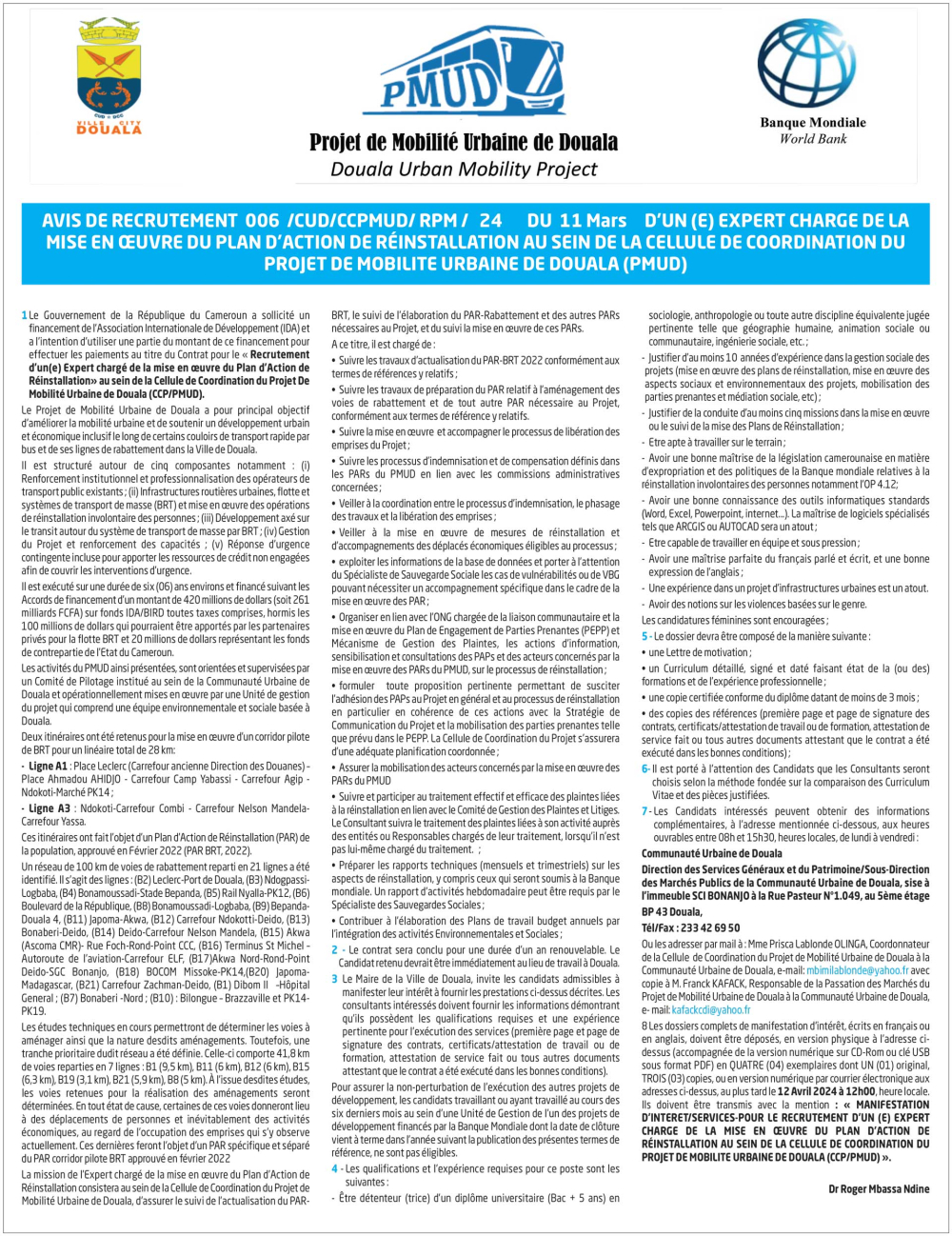
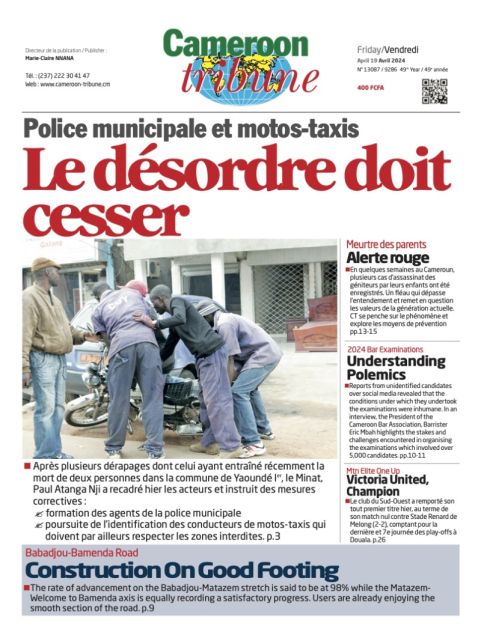




Commentaires